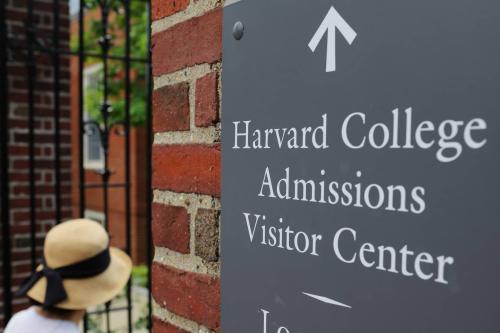Three stories tell the tale of the new global university marketplace:
- A promising young Singaporean studies in the West, wins a professorship in the Ivy League, returns to Singapore to head its leading university, then becomes the first president of Saudi Arabia’s King Abdullah University of Science and Technology (Kaust).
- The ambitious president of New York University begins to fulfill his vision for a “global network university” by opening an NYU liberal arts campus in Abu Dhabi.
- A South African woman earns a bachelor’s degree, then heads to Britain’s University of Warwick for a Ph.D in chemistry, joining three million other university students world-wide who are enrolled in campuses beyond their own borders.
The rhetoric of globalization has become so ubiquitous in the business world that it is easy to forget how radically the same forces are transforming university education. According to OECD figures, the number of globally mobile students, many of them heavily recruited, has increased 57% in the past decade alone. Half the world’s top physicists no longer work in their home countries.
Cross-border science collaboration has more than doubled since 1990, as measured by the percentage of internationally coauthored articles. Western universities set up branches in the Middle East and Asia. Nations from South Korea to Saudi Arabia, which for decades have sent their best and brightest to study in the West, now vie to create world-class research universities of their own.
Left unimpeded, this campus globalization will greatly speed the world-wide flow of human talent. Yet for all its promise, academic globalization—like its equivalents in the worlds of finance and industry—has proven controversial.
There are long-standing worries in the developing world about a brain drain, and the converse concern in the West that talented foreigners will crowd out domestic students. Above all, there is a broader fear in the West that as universities elsewhere become stronger and more competitive, we will lose our edge. As President Obama warned during the presidential campaign: How can the U.S. stay competitive when nations like China and Japan are outpacing us in the production of engineering PhDs?
This alarmism is perhaps to be expected given the magnitude of the changes under way. While America remains by far the biggest magnet for talent, followed by the U.K. and Australia, competition for students is fierce and U.S. market share fell to 19% in 2007 from 25% in 2000. There are new patterns of scholarly mobility, too. China and Japan, for instance, are hosting more foreign students from within their own region.
Trying to keep more of their top students and researchers at home, China and Singapore, among others, also are courting Western-trained faculty and pouring money into improving their universities, keenly aware that higher education is the pathway to innovation and economic growth. China has spent billions on a targeted group of campuses in an effort to become a serious player on the global scientific scene. Saudi Arabia opened Kaust with a $10 billion gift from King Abdullah that instantly gave it the world’s sixth-largest university endowment. In France and Germany, universities now compete for state funds earmarked for creating a small group of globally competitive institutions.
This intense scholarly competition and exchange—call it free trade in minds—is shaking up the academy. But the anxiety it creates on college campuses and beyond has led to periodic outbursts of academic protectionism. In India, for example, foreign universities are barred from setting up branch campuses, a policy that is only lately being revisited in a contentious bill before India’s parliament. Restricting mobility in the opposite direction, the director of one elite Indian technology institute banned his students from taking overseas internships. Malaysia has placed a 5% cap on the number of foreign undergrads at the nation’s public universities.
Overt protectionism is rarer in the U.S. and Britain (amid plenty of populist grumbling about the high representation of foreign graduate students in science and engineering programs). Still, visa barriers for students and researchers often frustrate university recruitment efforts. Such restrictions also threaten global research collaboration. As Robert Dingwall, director of the Institute for Science and Society at the University of Nottingham once complained: “This vision for a world without borders where knowledge flows freely is not matched by the free movement of people.”
An even bigger problem is what might be called psychological protectionism: the sentiment that if foreign nations are getting ahead academically, we in the West must be falling behind. Ian Gow, the founding president of Nottingham University’s Ningbo campus in China, has cautioned that China’s partnerships with British universities are a one-way street, intended to vacuum up Western science and technology strengths that China is desperate to gain: “British institutions must stop viewing this aggressively ambitious country through rose-tinted spectacles.”
This apprehensive response to the globalization of universities is misguided. It amounts to modern-day mercantilism, the outmoded idea that in order to prosper a nation must grab the maximum share of a finite amount of global capital. Nothing could be further from the truth.
No doubt the new global brain race will be intensely competitive. But competition is as healthy on campuses as it is everywhere else. More world-class universities and better-educated people in countries like China and India are good for the West, not bad. After all, increasing knowledge is not a zero-sum game. It is a public good that can be used by everyone. The free flow of people and ideas made possible by a global academic culture fosters inventive thinking and prosperity for East and West alike.


Commentary
Op-edNo Barriers to Free Trade in Minds
May 14, 2010